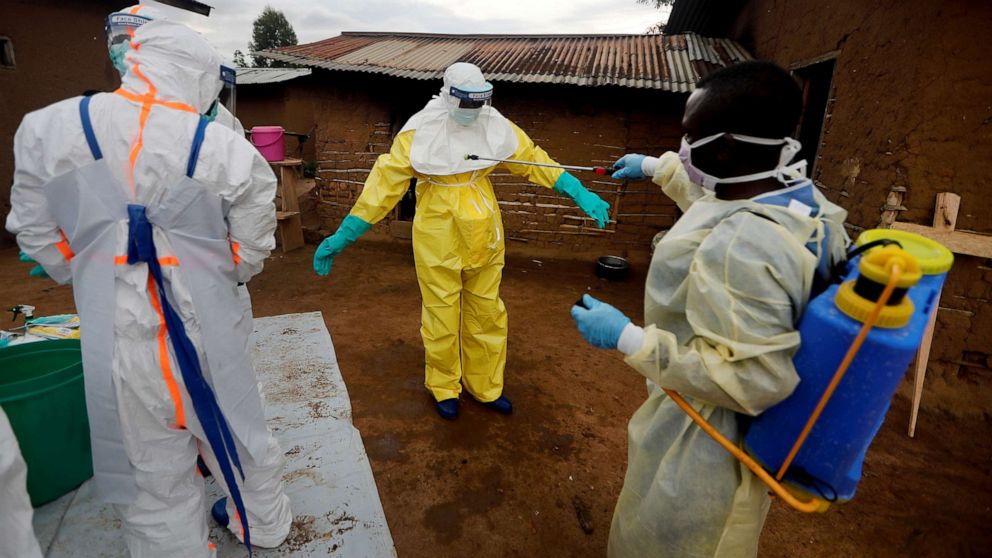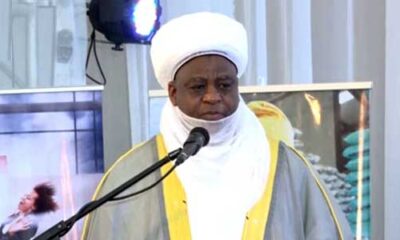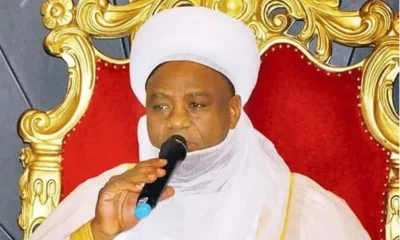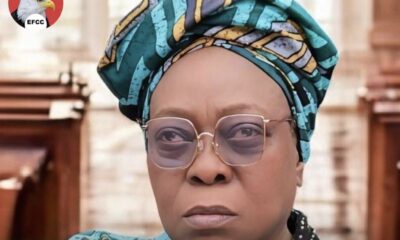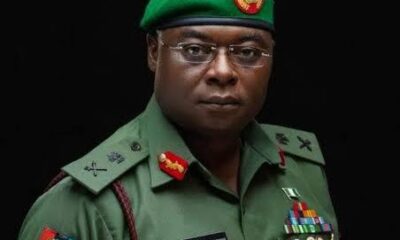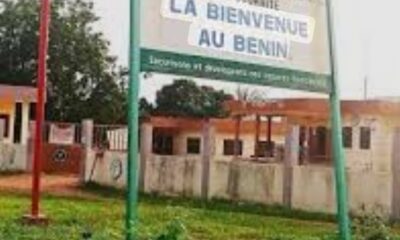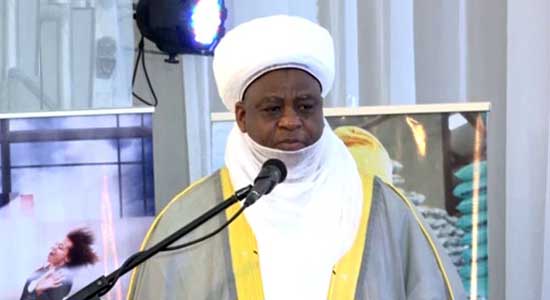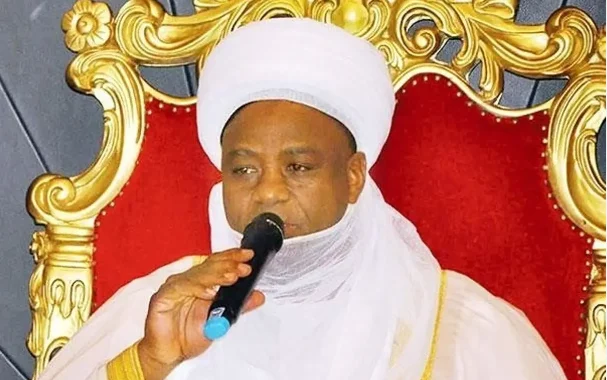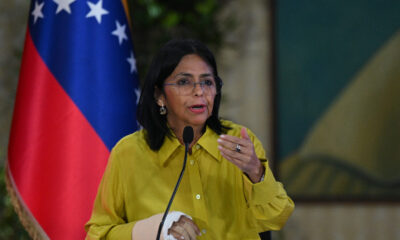The Federal Government said it had intensified monitoring and screening procedures at all points of entry in response to the ongoing outbreak of the Ebola Virus Disease in the Democratic Republic of Congo.
The Director of Port Health Services at the Federal Ministry of Health and Social Welfare, Dr Akpan Nse, disclosed.
Nse also noted that additional staff had been employed to strengthen border surveillance in the country.
Health authorities in the Democratic Republic of Congo declared an outbreak of Ebola virus disease in Kasai Province, where 28 suspected cases and 16 deaths, including four health workers, had been reported as of September 5, 2025.
The outbreak comes at a time when much of Central and West Africa is grappling with overlapping health and humanitarian crises, including cholera, malnutrition, and population displacement.
The DRC’s last outbreak of Ebola virus disease occurred in the north-western Equateur Province in April 2022.
It was brought under control within three months.
In Kasai Province, previous Ebola outbreaks were reported in 2007 and 2008. Overall, the country has experienced 15 outbreaks since the disease was first identified in 1976.
Ebola virus disease is a rare but severe, often fatal illness in humans.
It is transmitted to people through close contact with the blood, secretions, organs, or other bodily fluids of infected animals such as fruit bats (believed to be the natural hosts). Human-to-human transmission occurs through direct contact with the blood or bodily fluids of an infected person, contaminated objects, or the body of someone who died from the disease.
In the ongoing outbreak, samples tested on September 3 at the National Institute of Biomedical Research in the capital, Kinshasa, confirmed that the cause was Ebola Zaire, a strain of the Ebola virus.
Dr Nse noted that although Nigeria was at risk of importing the virus due to high levels of international travel with the DRC, Port Health Services was on alert and had strengthened surveillance to prevent this.
He said, “We have intensified surveillance at all points of entry across the country—airports, land borders, and seaports. Every inbound traveller coming from Congo to Nigeria is thoroughly screened, and we collect their medical history through mandatory forms.
“We have also reactivated our portals. Every passenger on every flight coming to Nigeria from Congo is screened upon arrival. This applies to airports, seaports, and land borders. Even if passengers transit through Congo on their way to Nigeria, they must undergo screening.
“In addition, with support from WHO, we have recruited more staff to enhance surveillance. Increasing the workforce allows us to effectively prevent the importation of the virus and ensure thorough screening at all borders.”
He added that some private organisations had partnered the Federal Government to ensure that thermal scanners at airports remained fully functional.
Meanwhile, the WHO has released $500,000 from its Contingency Fund for Emergencies to support the response to the Ebola Virus Disease outbreak in the DR Congo.
Announcing this at a media briefing on global health issues on Friday, the WHO Director-General, Dr Tedros Adhanom Ghebreyesus, disclosed that 28 suspected cases and 16 deaths had been reported so far, including four health workers.
He highlighted that the UN body already had staff on the ground in Kasai, with more on the way.
“We’re joining rapid response teams to trace contacts and find cases; we’re collecting and testing samples, and we’re providing technical expertise in surveillance, infection prevention and control, treatment, risk communication, and more. WHO has also delivered personal protective equipment, laboratory equipment, medical supplies, and a mobile laboratory.“We had previously prepositioned 2000 doses of Ebola vaccine in Kinshasa, which we are releasing to vaccinate contacts and health workers. This is the 16th outbreak of Ebola in the DRC, and the government has rich experience from those previous outbreaks,” the WHO boss stated.
Experts urge vigilance
An Associate Professor of Infectious Diseases and Genomics in the Department of Microbiology at the Adeleke University, Osun State, Oladipo Kolawole, warned that Nigeria should not let down its guard in order to prevent the importation of the virus.
While he expressed confidence in Nigeria’s expertise in handling the situation, he also called for coordination among various ministries, departments, and agencies to ensure an effective response to the outbreak.
“Everybody coming into the country, especially from DR Congo, must declare where they are coming from at the point of entry, and we must keep our surveillance system well-tightened.
“I think there is a bit of awareness about the virus in the country, and I’m very sure that all the institutions are on ground to handle things based on the experience we had previously on Ebola. I believe the Nigeria Centre for Disease Control and Prevention has a structured system in place that can handle that, and now they have expanded their lab to Lagos. The Nigeria Institute for Medical Research is also available in that regard, and they have a good structure to handle it.”
A virologist at the Department of Virology, College of Medicine, University College Hospital, Ibadan, Dr Moses Adewumi, emphasised the urgent need to activate surveillance systems to protect individuals and ensure that preventive measures were fully enforced to stop the virus from entering the country.
He stressed the importance of putting in place all necessary procedures to strengthen the country’s preparedness.
“We can’t stop people from travelling, but we need to ensure that surveillance is tightened.”
Adewumi further explained that travel protocols and screening procedures at points of entry must be strictly adhered to in order to identify potential cases early and prevent community transmission.
“We must be deliberate about monitoring points of entry, especially airports and land borders, so that no suspected case slips through undetected. Early detection is the key to prevention.
“I hope the leadership in the country will improve on the surveillance system. This is the time for us to demonstrate preparedness, strengthen laboratory capacity, and ensure that our response teams are well-coordinated to prevent the importation of the virus in the country,” he said.
The Head of the Infectious Diseases Unit, Lagos University Teaching Hospital, Idi-Araba, Lagos, Dr. Iorhen Akase, explained that Ebola transmission risk is significant only when someone is symptomatic.
On the role of government, he stressed border monitoring and surveillance.
“The government should monitor the borders closely for somebody who’s already symptomatic is something the government is doing, I’m aware, with all the scanners they have,” he said.

 Politics14 hours ago
Politics14 hours ago
 Lifestyle15 hours ago
Lifestyle15 hours ago
 Business14 hours ago
Business14 hours ago
 Lifestyle15 hours ago
Lifestyle15 hours ago
 Lifestyle5 hours ago
Lifestyle5 hours ago
 Sports14 hours ago
Sports14 hours ago
 Lifestyle4 hours ago
Lifestyle4 hours ago
 News14 hours ago
News14 hours ago
